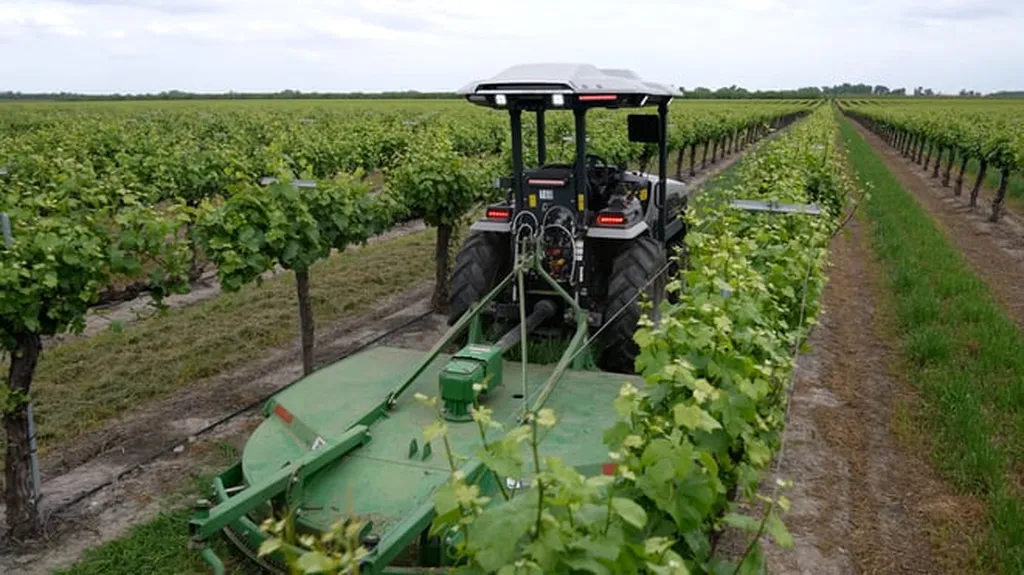In the summer of 2024, FieldWorkers, a company specializing in agricultural machinery for organic farming, introduced the HAR-e, a precision harrow designed to operate autonomously and continuously, reducing weed pressure in organic vegetable fields. This innovative machine is the first of its kind to offer full-field harrowing capabilities, and its introduction has sparked interest among organic growers seeking to optimize their weed management strategies.
The HAR-e is a lightweight machine, weighing in at just 1,500 kg, which significantly minimizes soil compaction compared to traditional harrows that require large tractors. This feature is particularly beneficial for maintaining soil health and structure, which is crucial for organic farming practices. The machine operates autonomously via GPS, allowing it to run 24 hours a day, thereby reducing the chances for weeds to develop and grow.
Koen Hertogh, co-founder of FieldWorkers, explained the motivation behind developing the HAR-e: “Every organic grower uses a harrow to reduce weed pressure. While selling our small weed beds to growers, we heard that harrowing actually happens too infrequently. It’s a labor-intensive process that’s hard to schedule during the busy season. That was our reason for developing a robot purely intended for harrowing all organic vegetables. Onions are the most important crop for this, because that’s where the machine’s investment can be earned back most effectively through labor savings.”
The HAR-e’s continuous operation is made possible by solar panels on its roof, which charge the batteries sufficiently during the day to allow the machine to operate at night. This feature ensures that the harrow can work indefinitely without the need for external charging. The solar panels are tilted upward not for increased sunlight capture but to give the robot a more aesthetically pleasing look.
The machine’s capacity varies depending on the crop stage and weed pressure. For instance, when young onions are still very small, the HAR-e operates at a speed of 0.5 km/h. As the onions grow larger, the harrow can increase its speed to 5 km/h, achieving a theoretical capacity of 1.8 hectares per hour. The HAR-e’s ability to turn sharply with a steering angle of more than 60 degrees allows it to navigate narrow headlands efficiently.
The HAR-e has been demonstrated at various events, including the Organic Field Day, and has garnered attention for its potential to revolutionize weed management in organic farming. The machine is also in use at Wageningen University & Research, where it is being studied to compare the differences in weed pressure and crop yields between robotic harrowing with the HAR-e and traditional harrowing methods.
The HAR-e’s technical specifications include a track width of 1.50 meters, a working width of 3 meters (with options for 1.5 and 4.5 meters), and a battery pack charged by six solar panels with a total of 40 kW. The machine’s working speed ranges from 0.5 to 5 km/h, and its capacity can reach up to 2.2 hectares per hour. The entire combination of robot and harrow costs about €75,000, excluding VAT.
FieldWorkers has already sold a HAR-e for 2026 to a customer who will implement it in practice. The company’s goal is to scale up this technology further, making it more accessible to organic growers. The introduction of the HAR-e represents a significant step forward in the adoption of autonomous technology in organic farming, offering a sustainable and efficient solution for weed management. As the agricultural industry continues to evolve, innovations like the HAR-e will play a crucial role in shaping the future of organic farming.

